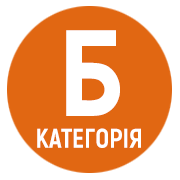THE TRIAL OF GENERAL MYRON OMELIANOVYCH TARNAVSKY
DOI:
https://doi.org/10.32999/ksu2786-5118/2024-45-1Keywords:
M. Tarnavskyi, S. Shukhevich, UGA, WRUPR, Directorate of the UPR, legal process.Abstract
The purpose of the research is to find out the course of events during the consideration of the court case against General M. Tarnavskyi. The methodological basis is the principles of objectivity, historicism, scientificity and personification of events. In the process of writing the article, methods of analysis, synthesis, generalization, as well as retrospective, chronological, prosopographic and comparative-historical methods were used. The scientific novelty consists in the coverage of the trial of General M. Tarnavskyi and the study of S. Shukhevich's actions in his decision to acquit M. Tarnavskyi of treason. To do this, we will try to recreate the situation in which M. Tarnavsky personally and the Ukrainian Galician Army (UGA) found themselves. The results. The figure of M. Tarnavskyi is quite controversial in Ukrainian history. The commander of the UGA, who concluded a separate agreement with the Volunteer Army of A. Denikin, is still being evaluated ambiguously by scientists. Some consider him a traitor to the unity, others prove that in that situation it was the only correct step to save the remnants of the Galician army. Most of the myths surrounding the figure of M. Tarnavskyi arose as a result of insufficient familiarity with his memoirs and the documents of the general's court case. Therefore, our task is not only to study the biography of the UGA commander, but also to overcome the biased conclusions of the history of his agreement with the White Guards. This will make it possible to better understand the motives of M. Tarnavskyi's such a move and the impact on the further development of Ukrainian liberation struggles. On August 30, 1919, the united Ukrainian army captured Kyiv, but soon had to retreat from the capital. A typhus epidemic began in the army, there was a shortage of weapons and food. Saving the army, M. Tarnavskyi on his own initiative sent delegates to negotiate an armistice with the Volunteer Army of General A. Denikin. The self-government outraged E. Petrushevich and M. Tarnavskyi was dismissed from the post of commander of the UGA and brought before the tribunal. In 1919, the commander of the UGA, General M. Tarnavskyi, was tried for the fact that he went to sign an agreement with the Volunteer Army of A. Denikin. With that agreement, M. Tarnavskyi saved the lives of hundreds of Ukrainian soldiers who could have perished in captivity. The military court acquitted General M. Tarnavskyi, because during the court hearings it was clearly established: in agreeing to the agreement, M. Tarnavskyi acted in the interests of Ukraine, in the interests of the UGA, in the interests of the Ukrainian military, in the interests of Ukrainians. Conclusions. Therefore, the court's conclusions confirm the innocence of General M. Tarnavskyi and his entourage in treason. Considering the difficult situation in which the united Ukrainian armies found themselves and inactive actions on the part of the Directory, the military leadership was looking for ways to solve the problems independently. This event did not turn the participants in the case into traitors of national interests, but it complicated the already strained relationship between the WRUPR leadership and the Directory UPR. Although Zluka's act was not officially denounced, at least no sources were found that would confirm it, but subsequent national competitions were already held separately by Ukrainians.
References
Ґенерал Мирон Тарнавський. Діло. 1939. Ч. 142. С. 1–2.
Тарнавський М. Спогади. Львів : Вечірня година, 1992. 163 с.
Доценко О. Літопис Української революції. Матеріали і документи до історії Української революції. Том ІІ. Книга 4. Київ – Львів : накладом автора, 1923. 362 с.
Байло А. Тимчасовий союз УГА з Добрармією та його наслідки. Україна: культурна спадщина, національна свідомість, державність : збірник наукових праць. Львів : Інститут українознавства ім. І. Крип’якевича НАН України, 2009. Вип. 18. С. 353–362.
Ірач М. Ганебні роковини. Західна Україна. 1930. № 3. С. 38–41.
Мазепа І. Україна в огні й бурі революції. Київ : Темпора, 2003. 607 с.
Павлишин О. Російський вектор зовнішньої політики Євгена Петрушевича. Проблеми вивчення історії Української революції 1917–1921 років: Збірник наукових статей. Вип. 14. Київ : Інститут історії України НАН України, 2019. С. 64–87.
Петлюра С. Статті, листи, документи. Нью-Йорк : Українська вільна академія, 1956. 482 с.
Процес генерала Мирона Тарнавського. Вінніпеґ : накладом хорунжого УСС Дмитра Микитюка, 1976. 72 с.
Солдатенко В. Осінь 1919 р.: доля об’єднаного фронту. Український історичний журнал. Київ : Дієз продукт, 2009. Вип. 1 (№ 484). 238 с.
Тимченко Р. Мирон Тарнавський – командувач Української Галицької армії. Проблеми вивчення історії Української революції 1917–1921 рр. 2013. С. 250–268.
Шанковський Л. Ген. Мирон Тарнавський і договір УГА з Доброармією Ген. Денікіна. Процес генерала Мирона Тарнавського. Вінніпеґ : накладом хорунжого УСС Дмитра Микитюка, 1976. С. 5–23.
Шухевич С. Спомини. Частина III. Від липня 1919 до січня 1920. Львів : Червона калина, 1929. 162 с.
Яневський Д. Політичні системи України 1917–1920 років: спроби творення і причини поразки. К.: Дух і Літера, 2003. 767 с.
Klimecki M. Polsko-ukraińska wojna o Lwów i Galicję Wschodnią 1918–1919. Warszawa, 2000. 291 s.



